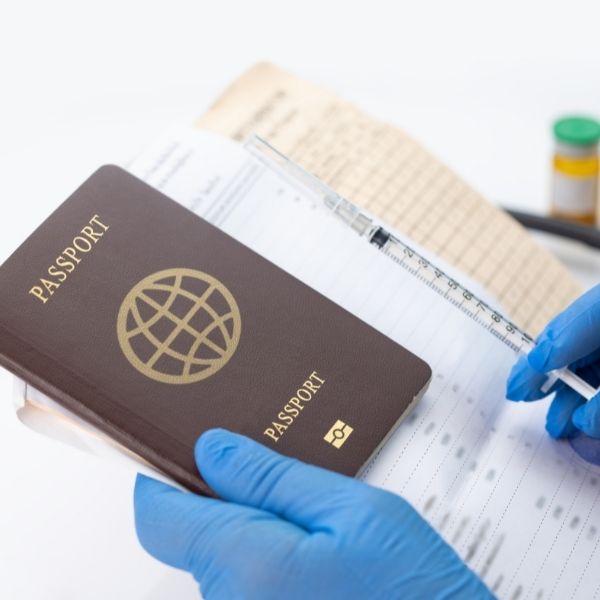
General Travel Vaccination Advice for Saint Kitts and Nevis
The decision to take a trip to Saint Kitts and Nevis is your decision and you are in charge of getting all the vaccination you are required to have ahead of your planned trip to Saint Kitts and Nevis.
The material on this page is offered information only and compiled from travel advice and warnings for Saint Kitts and Nevis by authorities around the world to their citizens.
While we make every effort to give you latest travel advice information, it is provided on an “as is” basis without warranty of any kind, expressed or implied.
This owners of this website does not assume responsibility and will not be liable for any damages in connection to the information provided.
General Vaccination Needed for Saint Kitts and Nevis
Do I require to vaccination when travelling to Saint Kitts and Nevis? Any individual wishing to embark on holiday or business trip to Saint Kitts and Nevis require to get in touch with a health care specialist or go to a travel health clinic ideally 6 weeks prior to you travel regarding the folloing:
Regular Vaccinations – Be sure that your routine vaccines such as inoculation for measles-mumps-rubella (MMR), diphtheria, tetanus, pertussis, polio, varicella (chickenpox), flu and others are up-to-date regardless of your travel to Saint Kitts and Nevis.
Furthermore, you might be at risk for these vaccine-preventable diseases when taking a trip in Saint Kitts and Nevis. Talk with your travel health expert regarding which of these injections are right for you:
- Covid 19 is a transmittable viral disease. It can spread from person to person by direct contact and through droplets in the air.
- Hepatitis B A disease of the liver spread via blood or other bodily fluids. Visitors that might be exposed (e.g., through sexual contact, clinical treatment, sharing needles, tattooing, acupuncture or work-related exposure) should get vaccinated.
- Influenza (Flu) Seasonal influenza occurs worldwide is brought on by a virus spread from person to person when they cough or sneeze or by touching items and surfaces that have actually been contaminated with the virus.
- Measles is a very infectious viral disease. It can spread promptly from one person to another by direct contact and also through droplets in the air.
- Tick-borne encephalitis is present in some locations of Saint Kitts and Nevis and it is a viral disease that affects the central nervous system (brain as well as spinal cord). It is spread to human beings by the bite of infected ticks or when you consume unpasteurized milk products.
Is it safer to take a trip to a location with animals in Saint Kitts and Nevis?
Travellers to Saint Kitts and Nevis are usually cautioned to stay clear of contact with animals, including dogs, monkeys, snakes, rodents, birds, and also bats. Some infections located in some areas of Saint Kitts and Nevis, like avian influenza as well as rabies, can be shared between people as well as animals.
Whilst taking a trip Saint Kitts and Nevis, is it safer to drink water in Saint Kitts and Nevis?
Visitors to any location worldwide including Saint Kitts and Nevis can develop travellers’ diarrhea from consuming contaminated water or food.
As food and water can carry diseases such as cholera, hepatitis A, schistosomiasis as well as typhoid, make sure you practice safe food and water precautions while taking a trip in any part of the world. Bear in mind: Boil it, cook it, peel it, or leave it!
Travel insurance for Saint Kitts and Nevis
Health cover is one of the primary factors visitors get travel insurance policy. It will not prevent you getting ill or injured, though it can stop you suffering financially. Medical help overseas can be really expensive.
You should shell out for all medical care you receive overseas. You can not expect to get free or subsidised care through your Saint Kitts and Nevis’s public health system, like you would in your home country.
If you can’t pay, local authorities could jail you. The government from your home country can’t pay you medical bill for you, loan you money or get you out of jail.
You require travel insurance for travelling to Saint Kitts and Nevis. You also need to make sure you choose a plan that is right for you.
Read the fine print of your travel insurance policy.
Declare all pre-existing conditions to your travel insurance firm upfront. If you don’t, you might invalidate your travel insurance plan.
Tell your travel insurer the activities you plan to do, before you go. Many popular activities like winter sports are excluded in standard policies. You may need to pay additional.
Check if you have free credit card travel insurance policy. Some cards include travel insurance coverage cover. However, they typically have various conditions than paid plans. Be aware of the differences.
If you’re travelling to Saint Kitts and Nevis from a country that has a reciprocatory healthcare agreement, you still require travel medical insurance. Agreements are restricted in what they’ll will cover.
If you have a terminal health problem, you may not be able to obtain basic travel insurance coverage. Nevertheless you may be able to find a specialised insurer that covers you for health, mishaps or property problems unassociated to your ailment. Speak to your insurance firm to learn.
Learn more about obtaining international travel insurance for Saint Kitts and Nevis prior to you go.
